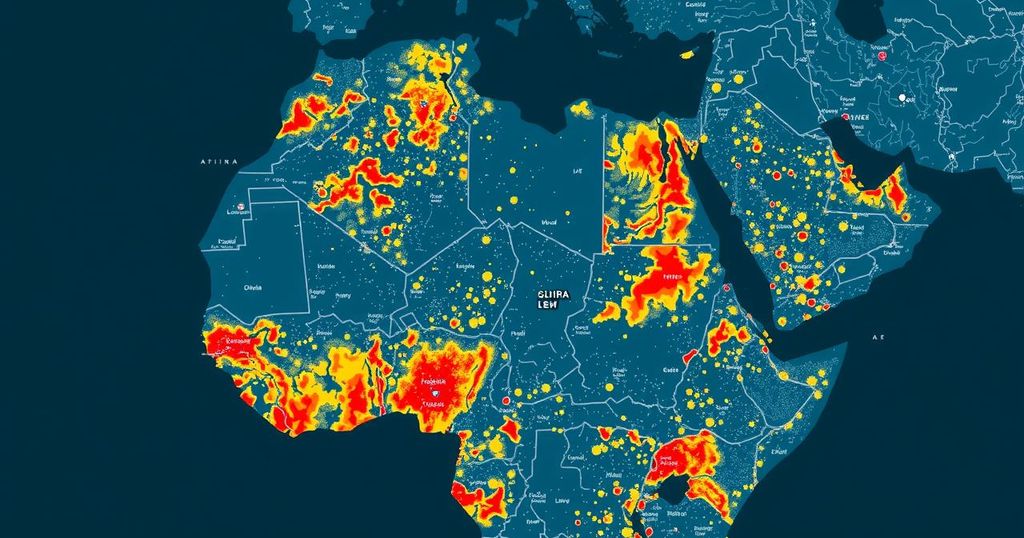Fathom’s collaboration with the Malaria Atlas Project focuses on assessing the impact of climate-induced flooding on malaria risk in Africa. By providing extensive flood risk data, the project seeks to understand how flooding affects healthcare infrastructures and malaria control efforts. Funded by the Bill & Melinda Gates Foundation, this initiative aims to support informed decision-making and enhance community safety against malaria through comprehensive analytics and evidence-based strategies.
The integration of Fathom’s flood data with the Malaria Atlas Project’s efforts is set to enhance our understanding of malaria risk in Africa, particularly as climate change influences flooding patterns. Fathom, a leader in global flood risk intelligence, has been tasked with supplying comprehensive flood risk data for Africa, analyzing current conditions and projecting scenarios extending to the year 2100. Funded by the Bill & Melinda Gates Foundation, this initiative will assess critical issues such as flooded transport infrastructure, the disruption of malaria control initiatives, and changes in mosquito breeding sites over time. With Fathom’s detailed and consistent flood risk information, researchers are examining the intricate dynamics between climate-induced flooding and malaria transmission. The data is proving essential for formulating resilient infrastructure strategies across Africa. As articulated by Professor Peter Gething, co-head of the Malaria Atlas Project, the insights derived from this data are invaluable for addressing malaria in flood-prone regions. Additionally, Dr. Andrew Smith, COO and Co-Founder at Fathom, emphasized the importance of this research in combating urgent global health challenges. As the flood risk data has now been delivered and initial analytics completed, the findings are expected to create a solid evidence base aimed at influencing future actions addressing the nexus of malaria and climate change. The outcomes of this project will be essential for ensuring informed decision-making processes aimed at enhancing community safety against malaria.
The Malaria Atlas Project, associated with the Kids Research Institute in Australia, is implementing a significant initiative to analyze the impacts of flooding and climate change on malaria risk across Africa. With funding from the Bill & Melinda Gates Foundation, this research is driven by the pressing need to address the health implications posed by climate change. Flooding can severely affect healthcare accessibility and interfere with established malaria control measures, consequently increasing transmission risk. Understanding the interplay between these factors is crucial for developing tailored interventions.
The collaboration between Fathom and the Malaria Atlas Project highlights the critical intersection of climate change and public health. By employing comprehensive flood risk data, the initiative aims to elucidate the impacts of flooding on malaria transmission dynamics across Africa. The findings will not only facilitate informed decision-making but also support the creation of resilient infrastructure aimed at mitigating future health risks associated with climate-induced flooding. This research emphasizes the necessity of integrated approaches to tackle complex health challenges posed by environmental changes.
Original Source: www.africa.com






